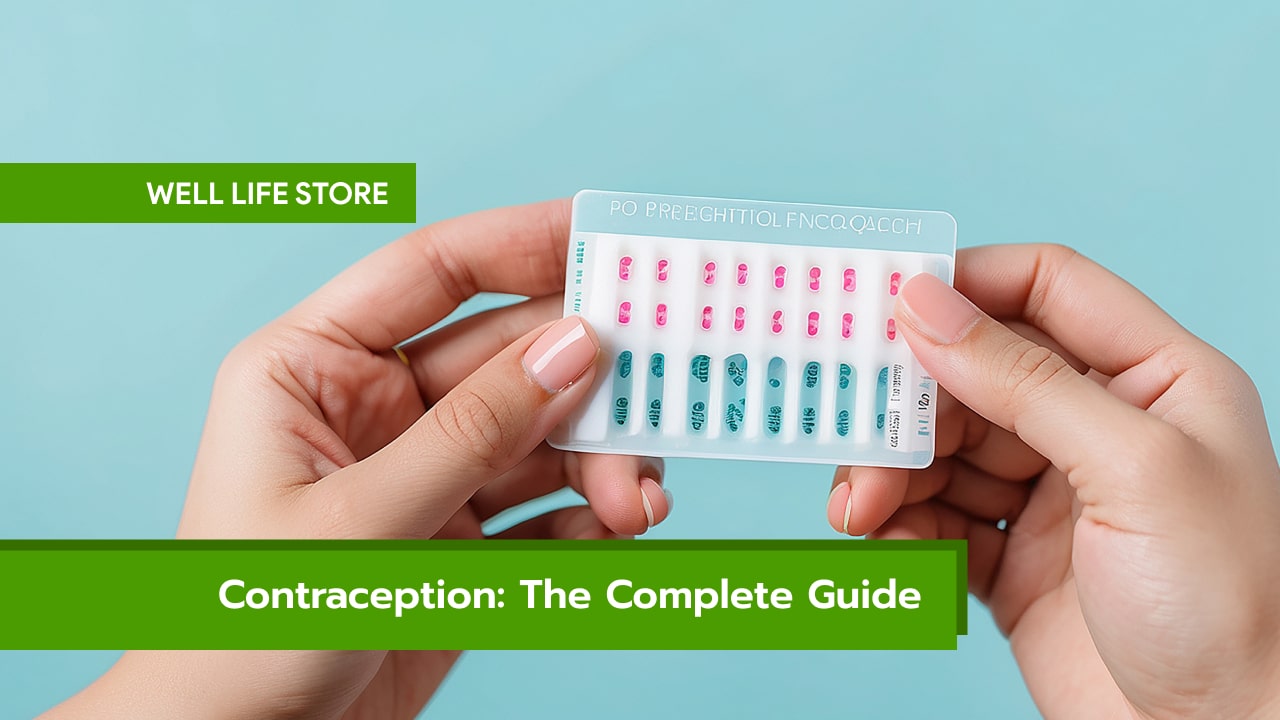
In today’s world, family planning is more important than ever. Whether you’re looking to prevent pregnancy, space out your children, or simply want to take control of your reproductive health, contraception plays a crucial role. This guide will walk you through the various methods available, their effectiveness, and how to choose the right option for you.
Understanding Your Options
Hormonal Methods
1. The Pill
The birth control pill is one of the most popular contraceptive methods. It contains hormones that prevent ovulation and thicken cervical mucus, making it harder for sperm to reach an egg. When used correctly, it’s about 99% effective.
Pros:
- Highly effective when used correctly
- Can help regulate menstrual cycles
- May reduce acne and menstrual cramps
Cons:
- Must be taken daily
- Can cause side effects like nausea and breast tenderness
- Not suitable for everyone, especially smokers over 35
2. The Patch
Similar to the pill, the patch releases hormones through your skin. You replace it weekly for three weeks, then go patch-free for one week.
Pros:
- No daily pill to remember
- As effective as the pill when used correctly
Cons:
- May be visible on skin
- Can cause skin irritation
3. The Ring
This flexible ring is inserted into the vagina and releases hormones. It stays in place for three weeks, then you remove it for one week.
Pros:
- No daily action required
- Lower hormone dose than some other methods
Cons:
- Some women find insertion uncomfortable
- May interfere with sexual activity
Long-Acting Reversible Contraception (LARC)
1. IUD (Intrauterine Device)
A small T-shaped device inserted into the uterus. There are hormonal and non-hormonal options available.
Pros:
- Extremely effective (over 99%)
- Can last for years
- No daily maintenance
Cons:
- Insertion can be uncomfortable
- Small risk of expulsion or perforation
2. Implant
A small rod inserted under the skin of your upper arm that releases hormones.
Pros:
- Highly effective (over 99%)
- Can last up to 3 years
- No daily maintenance
Cons:
- Insertion and removal require a minor procedure
- May cause irregular bleeding
Barrier Methods
1. Condoms
Available for both men and women, condoms create a physical barrier to prevent sperm from reaching an egg.
Pros:
- Also protect against STIs
- No hormones
- Readily available
Cons:
- Must be used correctly every time
- Can reduce sensation for some people
2. Diaphragm
A flexible cup inserted into the vagina before sex to cover the cervix.
Pros:
- No hormones
- Can be inserted ahead of time
Cons:
- Less effective than some other methods
- Requires proper sizing and insertion
Natural Methods
1. Fertility Awareness
This involves tracking your menstrual cycle and avoiding sex or using barrier methods during fertile days.
Pros:
- No side effects
- Can help you understand your body better
Cons:
- Requires diligent tracking
- Less effective than many other methods
2. Withdrawal (Pull-Out Method)
The man withdraws his penis before ejaculation.
Pros:
- No cost or preparation needed
Cons:
- Much less effective than other methods
- Requires self-control and timing
Choosing the Right Method
Selecting the best contraception for you depends on several factors:
- Effectiveness: How important is it to you to prevent pregnancy?
- Ease of use: Are you likely to remember a daily pill?
- Health considerations: Do you have any medical conditions that might affect your choices?
- Side effects: How do you feel about potential changes to your menstrual cycle or other side effects?
- Future fertility plans: How soon might you want to become pregnant?
- STI protection: Are you also concerned about sexually transmitted infections?
It’s crucial to discuss these factors with your healthcare provider. They can help you weigh the pros and cons of each method based on your individual needs and medical history.
The Importance of Correct Use
Remember, no contraceptive method is 100% effective, but many come close when used correctly. Here are some tips for maximizing effectiveness:
- Follow instructions carefully: Whether it’s taking a pill at the same time each day or properly storing and using condoms, following guidelines is crucial.
- Be consistent: Skipping or delaying doses of hormonal contraceptives can reduce their effectiveness.
- Have a backup plan: Know what to do if you miss a pill or a condom breaks.
- Regular check-ups: Visit your healthcare provider regularly to ensure your chosen method is still the best option for you.
Beyond Pregnancy Prevention
While the primary goal of contraception is to prevent unintended pregnancy, many methods offer additional benefits:
- Menstrual regulation: Some hormonal methods can make periods lighter, less painful, or even stop them altogether.
- Acne reduction: Certain birth control pills can help clear up acne.
- Cancer prevention: Some methods may reduce the risk of certain cancers, like ovarian and endometrial cancer.
- STI protection: Condoms remain the best way to prevent sexually transmitted infections for sexually active individuals.
The Future of Contraception
Research into new contraceptive methods is ongoing. Scientists are exploring options like male birth control pills, long-acting reversible contraceptives for men, and more targeted hormonal methods with fewer side effects. As technology advances, we can expect even more choices in the future.
Conclusion
Contraception is a personal choice, and what works best for one person may not be ideal for another. By understanding your options and considering your individual needs, you can make an informed decision about your reproductive health. Remember, it’s okay to try different methods until you find the one that works best for you. Always consult with a healthcare professional for personalized advice and to address any concerns you may have.
Taking control of your reproductive health is empowering. With the right information and support, you can choose a contraceptive method that fits your lifestyle and helps you achieve your family planning goals.
Must read:



Leave a Reply